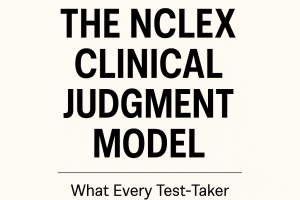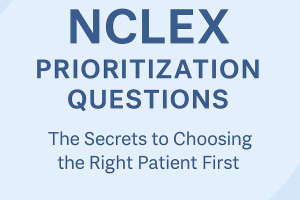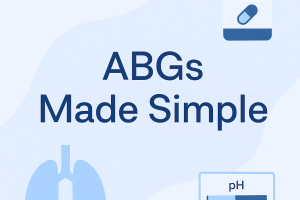GI DISORDERS: NURSING CARE FOR ULCERS, GERD, AND DIVERTICULITIS.

Introduction
Gastrointestinal (GI) disorders like ulcers, gastroesophageal reflux disease (GERD), and diverticulitis are common conditions that can significantly impact a patient’s quality of life. Each disorder presents unique challenges, and effective nursing care is crucial for symptom management, complication prevention, and patient education. This blog post will explore the characteristics, causes, symptoms, and nursing interventions for ulcers, GERD, and diverticulitis, providing a practical guide for delivering optimal care.
1. Understanding Ulcers
Ulcers are open sores that develop on the lining of the stomach, small intestine, or esophagus. They’re primarily caused by Helicobacter pylori infection or prolonged NSAID use. Patients may experience symptoms such as burning stomach pain, bloating, or nausea, particularly after eating.
Key Nursing Interventions for Ulcers
• Pain Management: Administer prescribed antacids, proton pump inhibitors (PPIs), or H2 blockers to reduce stomach acid and alleviate pain. Encourage patients to avoid foods that increase acid production, such as caffeine, spicy foods, and alcohol.
• Promote Healthy Lifestyle Choices: Encourage patients to quit smoking, as smoking can slow healing and exacerbate ulcer symptoms. Also, emphasize the importance of stress management, as stress can aggravate ulcer pain.
• Monitor for Complications: Be vigilant for signs of bleeding or perforation, such as vomiting blood, black stools, or sudden, severe abdominal pain. These symptoms require immediate medical attention.
• Patient Education: Instruct patients to take their medications as prescribed and avoid NSAIDs unless approved by a healthcare provider.
2. Nursing Care for GERD (Gastroesophageal Reflux Disease)
GERD occurs when stomach acid frequently flows back into the esophagus, leading to symptoms like heartburn, chest pain, and difficulty swallowing. This chronic condition can cause esophageal irritation and, if untreated, lead to more severe complications, such as Barrett’s esophagus.
Key Nursing Interventions for GERD
• Positioning: Elevate the head of the patient’s bed or advise patients to sleep with their head elevated. This position helps reduce acid reflux at night, preventing nighttime symptoms.
• Medication Administration: Administer PPIs, H2 blockers, or antacids as prescribed to reduce acid production and protect the esophageal lining.
• Dietary Modifications: Encourage small, frequent meals and avoidance of trigger foods like fatty foods, caffeine, and acidic foods. Patients should avoid lying down for at least 2 hours after eating to minimize reflux.
• Weight Management: Advise overweight patients on the benefits of gradual weight loss, as excess weight can increase abdominal pressure, worsening GERD symptoms.
• Smoking Cessation: Smoking can weaken the lower esophageal sphincter, contributing to acid reflux. Supporting smoking cessation efforts is essential in managing GERD.
3. Managing Diverticulitis
Diverticulitis is an inflammation or infection of small pouches (diverticula) that can form in the walls of the digestive tract, often in the colon. It typically presents with left lower abdominal pain, fever, and digestive changes. Mild cases can be managed with dietary changes and antibiotics, while severe cases may require surgery.
Key Nursing Interventions for Diverticulitis
• Pain Management: Administer pain medications as prescribed and encourage rest during acute episodes. Patients may also benefit from a heating pad to relieve abdominal pain.
• Monitor for Complications: Observe for signs of abscess, perforation, or peritonitis, such as worsening abdominal pain, fever, and increased white blood cell count, as these may require urgent surgical intervention.
• Dietary Recommendations: During acute episodes, patients may need to follow a clear liquid diet to rest the bowel. Once symptoms improve, a high-fiber diet can be gradually introduced to help prevent future episodes.
• Fluid Intake: Encourage adequate hydration to help soften stools, which reduces pressure on the colon and supports regular bowel movements.
• Patient Education: Teach patients the importance of a high-fiber diet for preventing flare-ups and advise them to avoid foods that may aggravate symptoms, such as nuts and seeds, if advised by their provider.
NCLEX-Style Practice Questions
Question 1
A patient with a history of ulcers is admitted with severe abdominal pain, black stools, and vomiting blood. What is the priority nursing action?
• A. Administer an antacid
• B. Notify the healthcare provider immediately
• C. Offer the patient a clear liquid diet
• D. Encourage the patient to rest in bed
Answer: B. Notify the healthcare provider immediately. Black stools and vomiting blood are signs of GI bleeding, a serious complication of ulcers, requiring prompt intervention.
Question 2
A nurse is educating a patient with GERD about dietary modifications. Which statement by the patient indicates a need for further teaching?
• A. “I will avoid drinking coffee in the morning.”
• B. “I should eat small, frequent meals.”
• C. “It’s okay for me to lie down right after eating.”
• D. “I’ll avoid fatty and fried foods.”
Answer: C. “It’s okay for me to lie down right after eating.” Patients with GERD should avoid lying down immediately after meals to reduce reflux symptoms.
Question 3
Which dietary recommendation should a nurse give to a patient recovering from an acute diverticulitis episode?
• A. Avoid all fiber until symptoms completely resolve
• B. Gradually reintroduce high-fiber foods to prevent future flare-ups
• C. Follow a high-protein diet immediately
• D. Avoid drinking water with meals
Answer: B. Gradually reintroduce high-fiber foods to prevent future flare-ups. After recovery from acute diverticulitis, a high-fiber diet is recommended to prevent recurrences.
Conclusion
Understanding GI disorders like ulcers, GERD, and diverticulitis allows nurses to provide patient-centered care, improve patient outcomes, and prevent complications. Effective nursing interventions, such as medication management, dietary counseling, and patient education, play a significant role in managing these conditions and enhancing patients’ quality of life. By staying informed and employing practical nursing strategies, healthcare providers can make a meaningful impact in caring for patients with GI disorders






